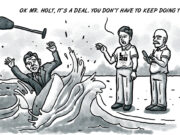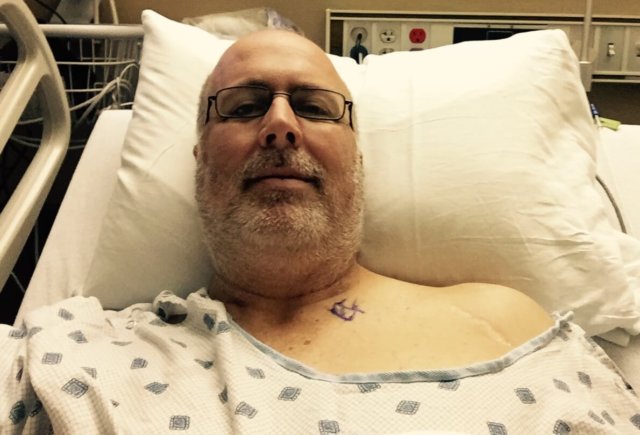
This has been a year of pain for a lot of people. No, I’m not talking about the emotional pain that comes with watching Twitter these days. I am referring to actual, real-life physical pain.
Many patients, meanwhile, fear they may suffer in physical pain due to pressure on physicians to limit pain prescriptions. For those of us who deal with pain on a daily basis, the struggle is real. I don’t need a hashtag for that.
The complexities arise in that struggle with pain. Many of those who abuse painkillers or opioids are people who have some level of real, physical pain. They subsequently get addicted to the medicines doctors prescribed to them, or they end up taking more than their bodies can handle.
Drugs are bad, m’kay …
Law enforcement actually seems to be reaching a crossroads in how it looks at pain given that investigators have actively cracked down on the illegal sale of pain medications. It’s understandable that law enforcement and health officials would want to get this under control. When people start abusing drugs – even legal ones – it can lead to long-term health problems or, as is often the case, death. Yes, Mr. Mackey, drugs are bad, m’kay.
Oklahoma took steps to work on remedying the opioid addiction problem earlier this year when Attorney General Mike Hunter sued a handful of drug manufacturers for misrepresenting the effects of the drugs on those taking it. The drug companies requested this week the lawsuit be dismissed.
On a national level, the federal government seems reluctant to take real action against drug manufacturers. President Donald Trump referred to the opioid epidemic as a national emergency but has stopped short of actually using his executive powers to make any official declarations.
… but each situation is unique
When I look at a guy like Golden State Warriors head coach Steve Kerr, I see someone whose back problems can be so debilitating that he is sometimes unable to even sit on the sidelines of an NBA game. Golf fans know the trials and tribulations Tiger Woods has gone through with his back problems, which may have effectively ended his professional golfing career.
For me, the continuation of pain began well before I was ever prescribed a painkiller. I have had back problems intermittently dating back to over a decade ago, but over-the-counter ibuprofen has mostly held it at bay. After my sciatic nerve repositioned itself near my spine a couple of years ago, I found myself in a whole new world of pain. I needed emergency surgery just so I could walk again.
I was one of the fortunate ones, as I was able to wean myself off the pain meds and get back to taking ibuprofen. That transition happened mostly because of affordability issues rather than need. The data tell us that millions of people out there find themselves on a different path than myself. My guess is many of them feel as if they need the medicine even if their physician or those around them think they are abusing their prescriptions.
We must examine pain
We live in a world where people love to judge others for actions they either don’t understand or just aren’t willing to accept. I can tell you firsthand that pain is something we must examine. I have no doubt there are plenty of abusers out there who may or may not have pain, but don’t let their behaviors ruin the realities for everyone else who has to struggle just to get out of bed each day.





















